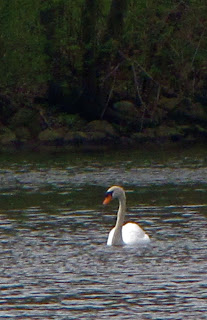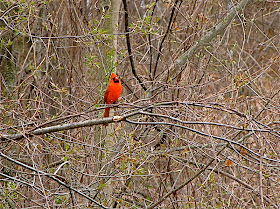Here are some thoughts about Josephine Jacobsen’s “In a
Motel in Troy, N.Y.” without reference
to Zeus as a swan raping the human Leda (and Yeats’ poem “Leda and the Swan”).
Do you agree that the poem has plenty to offer without framing it in the
Zeus-Leda story?
Also, I want to stay on the subject of poems that first and
foremost examine things carefully and
imaginatively, whatever else they might do. Maybe this is just another take on the Imagist or Symbolist
Movements, but let’s forget about labels and simply realize how important it is
to notice what things a poem focuses
on, as well as the way those things emerge through the filter of the poets’
minds, whether it’s Digges, Sexton, or Josephine Jacobsen.
In “A Motel in Troy, N.Y.” Jacobsen initially seems intent
on accurate observation alone. The opening image of shadows on a cribbage game
has some evocative or symbolic possibilities, but I hear it as primarily concerned
with precision in setting the scene. “We are playing cribbage in a motel room,
when a swan walks up to the window.”
There are minor grammatical issues that are a miniature of
the poem’s overall movement. In
“waddles rocking” Jacobsen could have said “rockingly,” but that grammatical
correctness and clarity would have been all wrong. “Waddles rocking” is a
little off in the jarring way a swan’s gait is off—awkward, comic, and in a
way, childlike.
That sentence is immediately followed by the poem’s closure,
which is technically a sentence fragment. The verb phrase “Sets sail” has no
subject. It could easily and naturally have been introduced by a comma instead
of a period, and thus been added to the previous sentence with no grammatical
puzzle. Jacobsen’s choice, however, leaner and more efficient, thus adding a
bit of action to a quiet scene.

Notice too that the final stanza opens in the passive voice.
That’s not an issue of grammar, but style; as such, might have upset Strunk and
White. Yet there’s no doubt in my mind that it’s the right choice. The central thing in the scene, the experience, is shifting from the swan to the larger
landscape and its “shadowy girl.”
The swan has been the focus of our attention; that’s changing as the
distance and the girl do the acting, pulling the swan into themselves.
This is not a scientific, logical, measurable event; it’s
dreamy, irrational, impressionistic, and fits nicely into the softer passive
voice. Distance and the shadowy girl are too far away and too amorphous to be
clear, defined doers of an action. Also, the transfer of power to them, from
the swan, is too gradual to be captured by a strong action verb, with all its
vulgar, jagged suddenness. The
swan, girl, and distance blend; it’s not a zigzag or slashing motion. Action
verbs can jerk, while this is delicate stuff, a merge without a clear tipping
point. In fact, the absence of a tipping point is the point. It is too lovely
and mysterious, too spiritual perhaps, to follow rules of rhetoric created by
humans (like rules for cribbage?), though the experience is all about the human
perception process.

The poem began with shadows falling on a human game,
cribbage, which includes a wooden board with holes to receive small sticks for
keeping score. Doesn’t that predict the process of the whole poem? A small,
mathematical, rational human activity—a game—occurs on something like a platform
behind the motel’s floor-to-ceiling glass. The motel room is a kind of theater,
staging an entirely human event, full of measured choices and movements. The
shadow that falls on that game is very different: amorphous, fuzzy, soft, dreamy, lazy, irrational, beyond
human control. The shadow is also a darkness, or dusk, compared to the spotlight
created by the huge window.
In short, the poem’s opening sentence, which seems merely
correct and careful in setting the scene, is a miniature of the entire
poem. The swan, traditionally
considered graceful and beautiful, is “huge.” Maybe we take some comfort in its “cumulus-cloud body,” but
we’re no sooner comforted than we discover the bird’s “thunder-cloud dirty
neck.” Its eyes are “inky.” They are set in a “painted face/coral and black”—a
noir carnival face for scaring children? Or a garish Hamburg whore? Those are
the eyes that “stare at our lives,” and they sit atop a neck that’s satanically
strong and snake-like.

For now, the only detail that might have a positive connotation
is the “coral” bill, and even with coral it’s only the color that might please,
for it will also cut you. The swan is mostly menace, maybe nightmare.
It also reveals some moderately comic features—“yellow
webs//splayed” and the aforementioned waddle—that might soften its scariness.
But add to that what is perhaps the poem’s most remarkable image of all: “the heavy/feathered dazzle.” The swan might be scary, but it’s also
dazzling. It’s important for us to be willing to say it’s all of these, another
mix and mingle: scary, funny,
dazzling. It’s too remarkable to be confined to one effect. All the humans can
do is stare.
Soon the bird retreats, first in comic awkwardness, but quickly
morphing into the romantic vision we’d always attributed to it, a creature
associated with the far “tip/ of the blue pond,” and a bird that “Sets sail/in
one pure motion.” The swan is to be received by two characters—not the distance
of scientific, prosaic perspective, but simply “distance,” which is awfully
close to personification. The female is not a woman, but a “shadowy girl,” who,
like distance, has entered the poem as if by magic, as if inhabiting some
fantastic realm “across the water.”

So much for cribbage and other measurable, measuring
concerns. In some aesthetically sterile motel room, a human speaker is
transported from rationality to romance by an animal that is all at once
nightmare, comedy, and spirit-beauty.
With the speaker, we arrive for a moment in some unlikely fairyland by
unhurriedly, open-mindedly observing a familiar creature as it becomes a
shape-shifter. It lives somewhere beyond grammar, calculation, and everyday,
working class, and maybe forgettable Troy, New York.
*
 I’ve postponed posting John Crowe Ransom’s “Blue Girls”
because I assumed a lot of people would scream “Sexist!” and be done with it.
And I’d get it. Add that to his being a father of The New Criticism and the
dubious, perhaps supercilious attitude I hear in his “Janet Waking” and “Bells for John Whiteside’s
Daughter” and I wondered if another Ransom poem would be worth the bother.
I’ve postponed posting John Crowe Ransom’s “Blue Girls”
because I assumed a lot of people would scream “Sexist!” and be done with it.
And I’d get it. Add that to his being a father of The New Criticism and the
dubious, perhaps supercilious attitude I hear in his “Janet Waking” and “Bells for John Whiteside’s
Daughter” and I wondered if another Ransom poem would be worth the bother. 





























